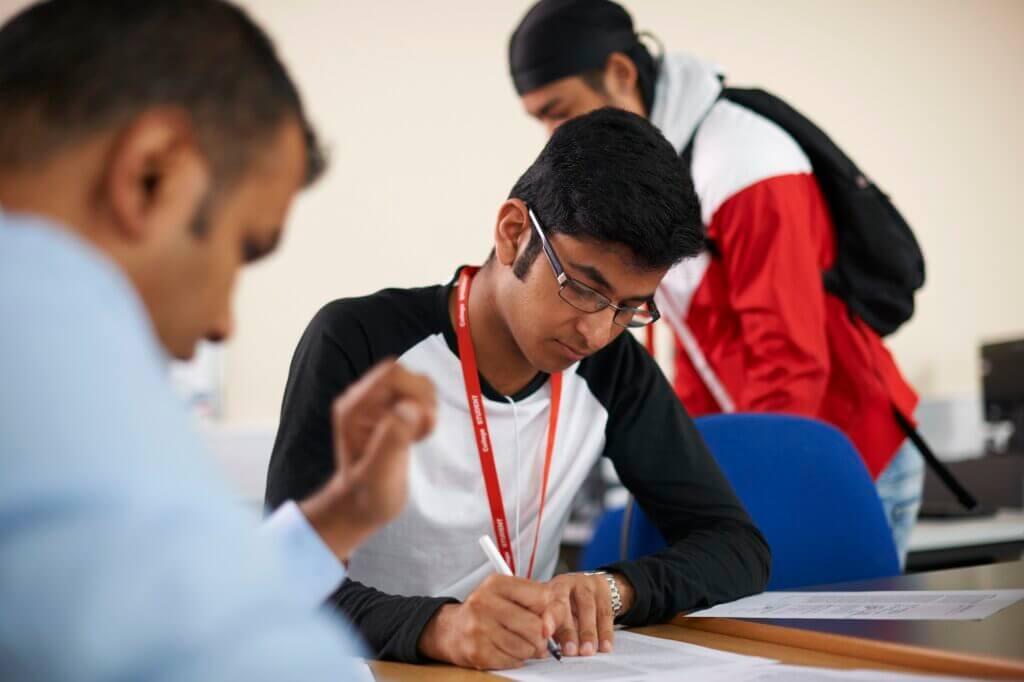

Every parent faces a crucial decision when choosing a school board for their child. The debate often comes down to CBSE (Central Board of Secondary Education) and ICSE (Indian Certificate of Secondary Education). CBSE emphasizes science, mathematics, and analytical skills, providing strong preparation for national competitive exams such as JEE and NEET.
ICSE focuses on English, literature, and holistic development, building skills for international education and fostering critical thinking and creativity. In this blog, you will get to know the differences between CBSE and ICSE, including syllabus structure, assessment methods, and skill development approaches, to help you make an informed decision for your child’s education.
What is the CBSE Board?
CBSE stands for Central Board of Secondary Education. Established in 1962, CBSE operates under the Ministry of Education, Government of India. It serves as the primary educational board for both public and private schools across India, with over 20,000 affiliated schools nationwide.
The CBSE curriculum is developed by the National Council of Educational Research and Training (NCERT) to provide uniform, structured, and student-friendly education. It emphasizes science, mathematics, and analytical thinking, making it ideal for students preparing for national competitive exams like JEE (Joint Entrance Examination) and NEET (National Eligibility cum Entrance Test).
CBSE covers a wide range of subjects, including science, mathematics, social sciences, arts, and humanities, while maintaining a focus on concept clarity and foundational learning.
Key Advantages of CBSE:
- Nationally recognized and aligned with competitive exams.
- Streamlined syllabus with balanced academics.
- Smooth transfer for students moving between CBSE schools across India.
- Strong focus on analytical and quantitative skills.
Disadvantages of CBSE:
- Limited emphasis on English literature and arts.
- Less focus on project-based and application-oriented learning.
- May provide fewer opportunities for creative skill development.
What is the ICSE Board?
ICSE stands for Indian Certificate of Secondary Education. It is conducted by the Council for the Indian School Certificate Examinations (CISCE), a private board established in 1958 to deliver high-quality education to Indian students. ICSE Class 10 students appear for ICSE Board Exams annually between February and March, while Classes 11 and 12 follow the ISC (Indian School Certificate) curriculum, also examined in February–March each year.
The ICSE curriculum is known for its comprehensive and balanced approach, giving equal weight to English, arts, and science subjects. It emphasizes application-based learning, project work, and internal assessments, ensuring students gain practical knowledge alongside theoretical understanding.
ICSE prepares students effectively for national and international higher education opportunities, and builds skills in critical thinking, creativity, and research.
Key Advantages of ICSE:
- Strong foundation in English language and literature.
- Balanced syllabus encouraging critical thinking and creativity.
- Emphasis on practical knowledge and project-based learning.
- Globally recognized, supporting international academic pathways.
Disadvantages of ICSE:
- Detailed and dense syllabus can be challenging for some students.
- Higher workload and assessment intensity may require extra parental support.
- Less aligned with national competitive exams compared to CBSE.
CBSE vs ICSE: Key Differences
CBSE provides a streamlined, India-centric curriculum ideal for students targeting competitive exams such as JEE and NEET. ICSE, on the other hand, offers a broader, in-depth syllabus that emphasizes English proficiency, critical thinking, and a holistic education with international recognition. Choosing between the two depends on a student’s learning style, academic goals, and whether they seek a nationally aligned or globally oriented education.
Curriculum & Syllabus
- CBSE: Compact, concept-focused, emphasizes science and mathematics, suitable for competitive exams like JEE, NEET, UPSC.
- ICSE: Detailed and broader, emphasizes English, arts, sciences, project-based learning, critical thinking, and analytical skills.
Examination & Assessment
- CBSE: Straightforward exams, mix of objective and subjective questions, tests problem-solving and concept application.
- ICSE: Descriptive and analytical exams, requires clarity in expression, language skills, and presentation; focuses on in-depth understanding.
Teaching Style
- CBSE: Result-oriented, structured classroom approach, emphasis on exam preparation.
- ICSE: Project-based, interactive, promotes practical and application-focused learning.
Medium of Instruction
- CBSE: English and Hindi, caters to wider linguistic diversity.
- ICSE: English only, develops strong language proficiency, useful for international studies.
Difficulty Level
- CBSE: Easier; covers key subjects with straightforward questions.
- ICSE: More challenging; covers extensive topics and requires deeper understanding and expressive skills.
Global Recognition & Opportunities
- CBSE: Nationally recognized, widely accepted across India, easier school transfers.
- ICSE: Internationally recognized, stronger English foundation, better for studying abroad.
Fees & Affiliation
- CBSE: Moderate fees, mix of private and government schools, larger network (~27,000 schools).
- ICSE: Higher fees, mostly private schools, smaller network (~2,300 schools), mostly urban locations.
Scholarships
- CBSE: Offers government-aided scholarships, accessible for students from various financial backgrounds.
- ICSE: Scholarships depend on individual schools; generally less accessible for financially weaker students.
CBSE vs ICSE: Grading System
CBSE Grading System
| Grade | Grade Point | Marks Range |
| A1 | 10 | 91–100 |
| A2 | 9 | 81–90 |
| B1 | 8 | 71–80 |
| B2 | 7 | 61–70 |
| C1 | 6 | 51–60 |
| C2 | 5 | 41–50 |
| D | 4 | 33–40 |
| E1 & E2 | 0 | 21–32 |
ICSE Grading System
| Grade | Standard |
| 1 & 2 | Very Good |
| 3, 4 & 5 | Pass with Credit |
| 6 & 7 | Pass |
| 8 & 9 | Fail |
Final Verdict: Which Board is Better?
There is no absolute “better” board—it depends on the student’s goals and learning style. CBSE is ideal for students aiming for competitive exams in India due to its focused syllabus and structured approach. ICSE suits those seeking a broader, in-depth education, strong English skills, and global academic opportunities. Parents should choose based on their child’s strengths, future aspirations, and preference for either a nationally aligned or internationally oriented education.

blog & news
Stay Informed, Stay Inspired.


CBSE Class 10 Maths Chapter 15 Probability Formulas – Complete Guide

Surface Area and Volume Formulas for CBSE Class 10 Maths with Examples
Start your journey
with ConnectEd.

Start your journey
with ConnectEd.

Get in touch with us with any inquiries or assistance.
ADDRESS
Visit us for a personal consultation or meeting.


